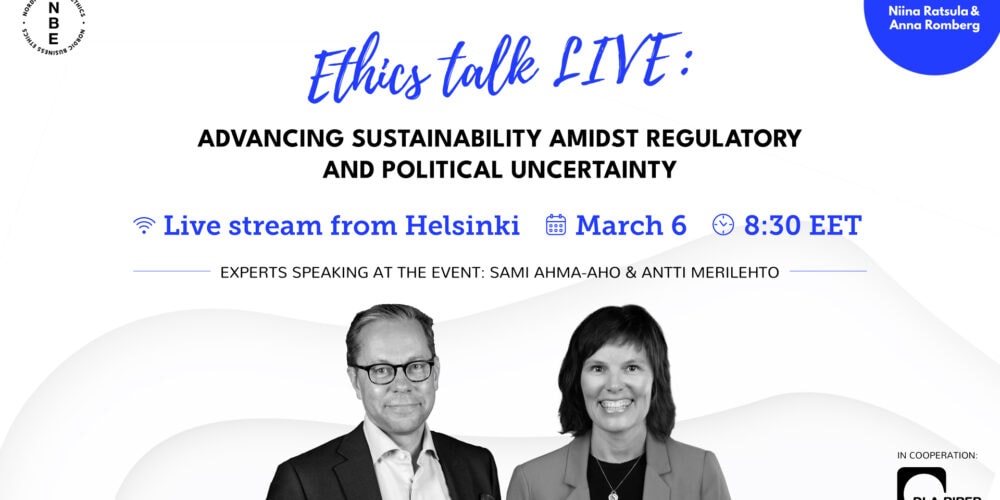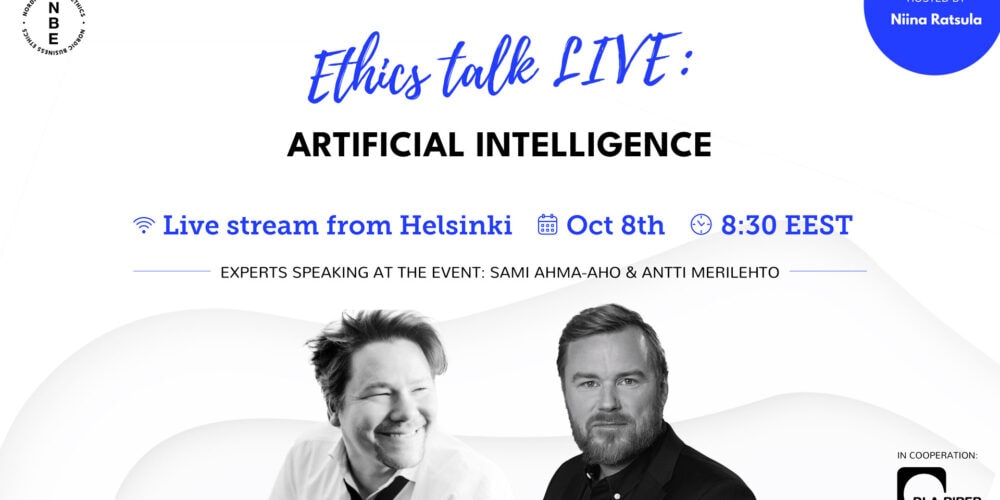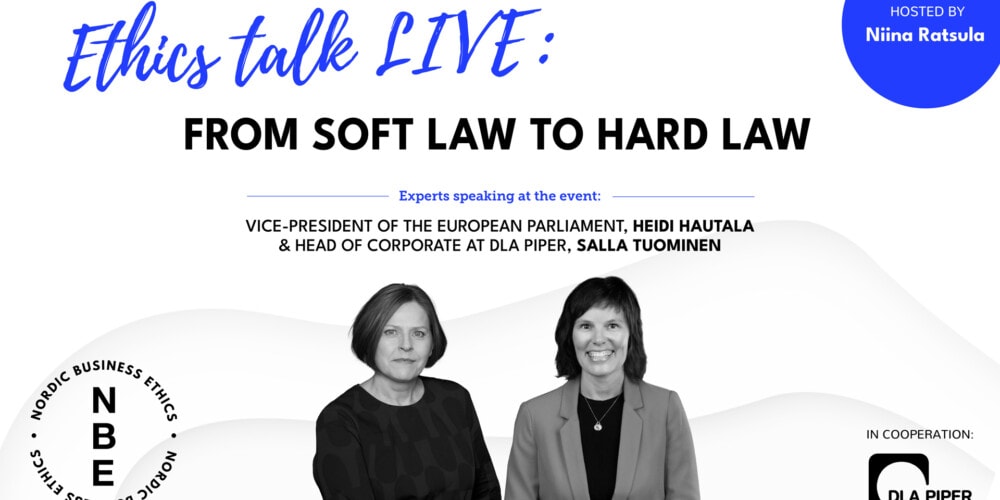Recap blogpost on our breakfast event with Alison Taylor and Richard Bistrong
Anna and Niina were fortunate to host both Alison Taylor, author of Higher Ground: How Business Can Do the Right Thing in a Turbulent World (book link here), and NYU Stern School Professor as well as Richard Bistrong, CEO, of Front-LineAnti-Bribery (www.richardbistrong.com), during their recent visit to Helsinki. Richard has summarised NBE’s and Code of Conduct Company’s co-hosted breakfast event’s key takeaways in this blogpost.
Companies need to walk the talk
Alison started by sharing how our traditional view of not breaking the law is no longer ‘fit for purpose’ as an ethics and compliance pillar, given our hyper-transparent world where reputational and stakeholder risk is on the rise. Alison also pointed to the differences in generations in how younger employees have higher expectations when it comes to organizational values and how those get operationalized. In other words, aspirations and website statements are no longer enough. Companies will be held to task for what they do, not just what they say.
Richard echoed that sentiment in how lofty goals and codes of “say no to bribery” is not helpful to those in the field who face real-world risk that differs among cultures and regions. As he shared, anti-corruption is not a one-size-fits-all problem or solution. He emphasized the importance of contextualizing global codes and values to the real-world risks that people face in their work and roles. He also referenced research here which demonstrates that more and more organizations are using values over rules to inspire and influence the workforce.
Niina also shared how as people our actions are based on our values and how values inform our perceptions of corporate integrity and ethics. Anna pointed out how this is now even more important and challenging, as companies are expected to solve and address traditional societal problems – such as corruption- but based on recent regulations, such as the EU Corporate Sustainability Reporting Requirements, so much more.
Satisfying regulators and stakeholders
Alison addressed how we need to be strategic and focus on the issues where an organization can have an impact and to avoid a ‘tick the box’ approach to ESG, stakeholder, and societal expectations. While regulations can help, they are not homogenized, so we need to be careful as to how we manage different regulatory requirements.
Niina talked to the point of how we wouldn’t need legislation if we were as good as we think we are! While soft law has been there for quite some time, we haven’t delivered, and zero-tolerance does not make a company a forerunner in sustainability. First, organizations need to know their impact and where they can make a difference. Richard referenced Benjamin van Roiij’s discussion with Anna and Richard at previous conferences, where he shared that designing compliance programs on law is the wrong way to approach ethical decision-making and does not consider human biases and behaviors. In other words, satisfying the regulators is not enough, and if we are not careful this ‘criminal law lens’ can lead to what Richard calls “awful but awful decision-making.”. Accordingly, there was consensus on how to mitigate this blind spot by asking “Do your employees understand the why of policies, rules, and procedures?”.
We think we are more ethical than we are
Niina encouraged us to train our ethical muscles Sure, it’s easy to focus on technical and regulatory matters but we need to keep the focus on individuals and inspiring and influencing them to “do the right thing,” even if there is not a rule to govern a particular interaction. And if you are not sure how this is going, ask your teams! As Richard shared from the referenced research, management thinks everything is great, but when you ask that question to the mid and lower levels of the organization, it’s a whole different story. As Anna often shares, “We think we are more ethical than we are.“
Make sure to continue on the subject and watch our EthicsTalk LIVE recording on how business can do the right thing in a turbulent world with Alison and Richard. In the recording, Anna and Niina shared their experiences about accountability and how everyone has a role to play. Yet as Alison shared “Easy to say, hard to do”. Niina summed up “it’s ok to be confused” it’s who we reach out to that’s most important. And if all this doesn’t spark your curiosity, we hope that Alison’s comments on a “banana skin in an elevator” will!!



